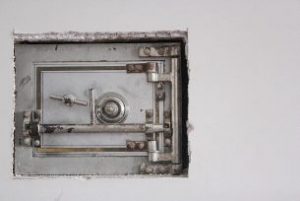Is Your Safety Deposit Box Really a Safe Bet?


Safety Deposit Box
You finally got around to creating an estate plan after listening to family and friends harp about how important it is to have one. In all that harping, however, no one told you what to do with your estate planning documents once they are ready. Because you probably keep other valuables in your safety deposit box that may seem like a good option. The Knoxville estate planning attorneys at Stivers Law explain why your safety deposit box may not be the safest place to keep your estate planning documents.
Your Estate Plan Documents
In many cases, an original copy (meaning one with an original signature in ink) of an estate plan document is required for the document to work as intended. For this reason, your original estate planning documents should be kept together in a safe place. Understandably, the first place many people think of is an existing safety deposit box. While it may appear to make sense to keep your estate planning documents with other valuables, there are reasons why your safety deposit box is not the best choice.
Probate and the Problem with a Safety Deposit Box
You need to understand some probate basics to understand why putting your estate planning documents in your safety deposit box may not be the best choice. Following your death, your estate needs to go through the legal process known as “probate.” Probate serves numerous purposes, including:
- Identifying and securing your assets
- Authenticating your Will
- Paying debts of the estate
- Litigating any claims against the estate
- Paying estate taxes
- Distributing assets to beneficiaries and/or heirs
If you executed a Will prior to your death, you appointed someone to be the Executor of your estate. Your Executor is responsible for overseeing the probate process. To fulfill that role, your appointed Executor must initiate the probate process with the appropriate court and petition the court to officially be appointed as your Executor. If the court approves the appointment, the court will issue Letters Testamentary which provide proof that the Executor has been appointed by the court and therefore has the authority to act on behalf of the estate.
Here’s where the problem with using a safety deposit box to store your estate planning documents begins. To initiate the probate process and secure the appointment as your Executor, courts typically require the Executor to submit an original copy of your Will. If your Will is in your safety deposit box, however, the bank won’t allow access to the box without proof that the individual seeking access is the Executor of your estate. This creates a never-ending circular argument. Your chosen Executor cannot secure the necessary Letters Testamentary to act as your Executor without your Will – but he/she cannot access your Will without the Letters Testamentary. The same problem can occur with other estate planning documents as well. For example, an Agent with your Power of Attorney may have the legal authority necessary to access your safety deposit box; however, if the POA document granting your Agent that authority is in the box, your Agent has no way to prove that he/she is your Agent.
Where Should I Store My Estate Planning Documents?
If not your safety deposit box, then where? First, it is always a good idea to execute more than one original copy of important documents. Ask your estate planning attorney to keep one set of original documents. Also give an original copy to anyone named as a fiduciary within your plan. For example, your Executor should get an original copy of your Will, a Trustee should have an original copy of a trust agreement and an Agent needs an original copy of a Power of Attorney. Finally, an original set of documents should be kept at home in a fireproof safe and/or given to a trusted family member. You should also make sure that your appointed Executor has contact information for your estate planning attorney.
Contact Knoxville Estate Planning Attorneys
For more information, please join us for an upcoming FREE webinar. If you have additional questions or concerns about estate planning, or you are ready to get started on your plan, contact the experienced Knoxville estate planning attorneys at Stivers Law by calling (305) 456-3255 to schedule an appointment.

